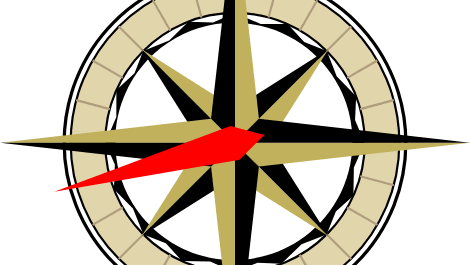Qibla Direction in Dubai: For Muslims around the world, the Qibla direction holds profound spiritual significance, guiding them toward the Kaaba in Makkah during daily prayers (Salah). In Dubai, a city known for its diverse population and modern infrastructure, ensuring accurate Qibla orientation is a priority for both residents and visitors. This guide explores the importance of Qibla direction, how to determine it in Dubai, and the tools and resources available for convenience.
The Importance of the Qibla Direction
The Qibla is the direction that Muslims face during their prayers, uniting worshippers worldwide in their devotion to Allah. Centered on the Kaaba, the sacred cube-shaped structure in the Masjid al-Haram mosque in Makkah, the Qibla symbolizes unity and the shared focus of the Muslim ummah.
Accurately determining the Qibla direction is an essential aspect of Salah, ensuring the act of worship adheres to Islamic principles. For Muslims living in or traveling to new places, identifying the correct Qibla direction becomes a crucial task.


Determining the Qibla Direction in Dubai
Dubai’s geographical location makes it relatively straightforward to identify the Qibla direction. The city lies southeast of Makkah, and the Qibla is approximately west-southwest from most parts of Dubai. However, there are variations depending on the specific area within the emirate.
Here are some effective methods to determine the Qibla direction in Dubai:
1. Qibla Compasses
Traditional Qibla compasses are widely used and easily available in Dubai. These specialized compasses include marked indicators pointing toward the Kaaba. Users can align the compass based on the directions provided to locate the Qibla accurately.
2. Smartphone Applications
The advent of technology has made finding the Qibla direction simpler than ever. Various smartphone apps, such as Muslim Pro and Qibla Connect, use GPS and augmented reality to provide accurate Qibla directions. These apps are especially helpful for travelers or those unfamiliar with their surroundings.
3. Mosque Orientation
Mosques in Dubai are designed with meticulous attention to detail, with their prayer halls oriented toward the Qibla. Observing the alignment of prayer rugs or structures within a mosque can provide a clear indication of the correct direction.
4. Google Maps and Online Tools
Using Google Maps or other online tools, users can identify their location in relation to Makkah and draw a line to determine the Qibla. Many online resources also offer dedicated Qibla-finding tools that use geographic coordinates.
5. Hotel Room Markings
For visitors staying in Dubai’s hotels, most rooms feature Qibla direction markings, typically located on the ceiling or near the room’s desk. These markings are a thoughtful addition for Muslim guests, ensuring convenience during their stay.
Factors Influencing Accurate Qibla Determination
While modern tools and technology provide reliable results, a few factors can influence the accuracy of Qibla direction in Dubai:
- Magnetic Interference: When using a traditional compass, avoid areas with magnetic interference, such as near electronic devices or metal structures.
- GPS Accuracy: Ensure the GPS settings on your device are enabled and functioning correctly when using smartphone apps.
- Local Landmarks: Familiarizing yourself with Dubai’s geography, including its proximity to Makkah, can help in double-checking the Qibla direction.
Qibla Direction and Dubai’s Islamic Culture
Dubai’s commitment to preserving Islamic traditions and values is evident in its infrastructure and urban planning. Mosques, prayer rooms, and Islamic centers are abundantly available throughout the city, reflecting the importance of Salah and Qibla orientation.
Mosques as Community Hubs
Dubai is home to some of the most beautiful and architecturally significant mosques, such as the Jumeirah Mosque and Al Farooq Omar Bin Al Khattab Mosque. These mosques not only provide spiritual spaces for worship but also act as cultural landmarks, attracting both residents and tourists.
Prayer Rooms in Public Spaces
Recognizing the diverse and busy lifestyles of its residents, Dubai has incorporated prayer rooms in public areas, including malls, airports, and government offices. These facilities are designed to face the Qibla, offering convenience for Muslims on the go.
Education and Awareness
Islamic schools, cultural centers, and workshops in Dubai emphasize the importance of Salah and Qibla orientation as part of Islamic teachings. Such initiatives foster a sense of unity and religious awareness among the city’s Muslim community.
Tools for Finding the Qibla Direction in Dubai
To ensure accuracy and ease, here are some recommended tools and resources for finding the Qibla direction:
- Digital Qibla Compasses: Devices equipped with digital displays for easy Qibla identification.
- Mobile Applications: Popular apps like Qibla Finder and Muslim Assistant offer user-friendly interfaces and real-time direction tracking.
- Wearable Technology: Smartwatches with Islamic features, including Qibla-finding functions, are gaining popularity among tech-savvy users.
Tips for Travelers in Dubai
- Plan Ahead: Familiarize yourself with Qibla direction apps or tools before traveling.
- Leverage Local Resources: Utilize hotel amenities and public prayer facilities for accurate Qibla orientation.
- Stay Adaptable: In unfamiliar locations, use mobile apps or consult local residents to confirm the Qibla direction.
Conclusion
For Muslims in Dubai, accurately identifying the Qibla direction is integral to fulfilling their religious obligations. With the city’s advanced technology, well-planned infrastructure, and cultural inclusivity, determining the Qibla has never been easier. Whether through traditional methods or modern innovations, Dubai ensures that residents and visitors alike can perform their prayers with confidence and ease.
By blending tradition with technology, Dubai exemplifies how a cosmopolitan city can uphold its Islamic heritage while catering to a global audience.
Do follow Uae stories for more Updates
Distance Education in the UAE: A Growing Frontier of Learning













